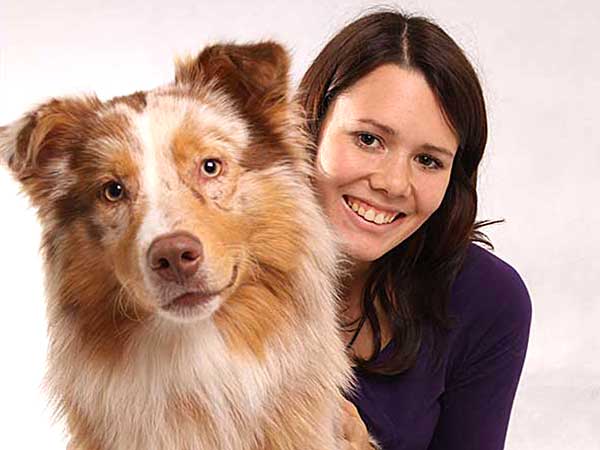
First Aid Dog Kits:
Are You Prepared To Act Quickly?
Just because we don't like thinking about things doesn't mean they won't happen—and sometimes they do in the worst possible place at the worst possible time. But even if a medical crisis occurs at home do you know what to do? Do you have a first aid dog kit ready? And what should you keep in one? Would you know what to do when every second counts?
You'll rest easier knowing you are prepared. That's where first aid dog kits come in. They are similar to first aid kit for humans but have a few extra items that will make it easier and safer to deal with an injured dog.
Like any emergency equipment, it will do you no good if you don't know where it is when you need it. That includes everyone in your family. Your children may not be able to administer first aid but you may need them to get the dog first aid kit at a moments notice. Don't forget if you go away and leave your dog in the care of someone else that they are briefed about the kit too.

k411e / Dollar Photo Club
Do you have a first aid kit for your dog? You'll rest easier knowing you have your dog first aid kit ready when you need it.
Here are some of the basic things you would want to include in your dog first aid kit:
• Emergency information card: You will want a handy reference with your vet's phone number, after-hours numbers, emergency clinic phone number and location. It might be good to print out a map if you need to. Include a poison hotline number and a list of all the medications your dog is on and the dosages. Also note any history or allergies. These are things you might forget in the middle of a crisis.
• Muzzle: When injured, in pain or disoriented your dog may lash out at you or someone else who is trying to help them. To keep things safe for everyone include long cloth strips you could use as a muzzle or an actual muzzle. Be sure to test it for fit and comfort so you know it will work and how to use it when you need to.
• Leash: It is a good idea to keep a spare leash in your pet first aid kit
• Large, sturdy sheet: If your dog is immobilized you might need to move him. Due to the nature of her injuries you may not be able to just pick her up. A sheet that is large enough and sturdy enough to carry the weight of your dog (who may be thrashing about) and allow enough gripping area.
• Blanket: To conserve space you might include a foil emergency blanket in your first aid dog kit. You will need this to keep your dog warm and prevent hypothermia.
• Towels
• Stretchy bandage wrap
• Absorbent gauze pads in various sizes and rolls that you can wrap around injured areas.
• Sterile non-stick gauze pads for bandages
• Cotton balls or swabs
• Rectal thermometer: A dog's normal temperature is 101 to 102.5 degrees Fahrenheit (38.3 to 39.2 degrees Celcius).
• Petroleum jelly (to lubricate the thermometer)
• Rubbing alcohol (isopropyl) to clean the thermometer
• Hydrogen Peroxide: Can be used to induce vomiting (but only when directed by a vet or poison-control expert). Can also be used to clean wounds with sterile pads.
• Sterile saline solution (sold at pharmacies)
• Ear-cleaning solution
• Styptic powder or pencil to help stop bleeding (sold at veterinary hospitals, pet-supply stores, and your local pharmacy)
• Ice packs and heat packs
• Non-latex disposable gloves
• Non-prescription antibiotic ointment
• Diphenhydramine (Benadryl®), if approved by a veterinarian for allergic reactions. A veterinarian must tell you the correct dosage for your dog's size. Write that dosage down on your emergency information card.
• Glucose paste or corn syrup (for diabetic dogs or those with low blood sugar)
• Expired credit card or sample credit card to scrape away insect stingers
• Scissors (with blunt ends)
• Tweezers: Handy for removing slivers and ticks.
• Needle-nosed pliers or multi-tool with pliers are good for removing porcupine quills or even choking items.
• Nail clippers
• Penlight or flashlight
• Plastic eyedropper or syringe
• Splints and tongue depressors
• Tourniquet kit: Should include a stick, piece of cloth and tourniquet rod. You will want to read first aid dog books to familiarize yourself with how to use a tourniquet and other techniques so you know what you are doing and don't wind up doing more harm than good.
• Temporary identification tag (to put your local contact information on your pet's collar when you travel)
• Collapsible food/water bowl
• Water bottle
You can also customize your first aid dog kit by adding other essential items that may be particular to your dog's needs or other things that you would want to have in case of an emergency.
Step One:
Get A Dog First Aid Kit
You can get your dog first aid kit just about anywhere including easily ordering one online. Or you can get one at your local store.
Either way, it's a good idea to have one on hand for peace-of-mind just in case you need it.
Don't wait until after an emergency to decide it's time to get one.
Step Two:
Know How To Use Your First Aid Dog Kit
There is no substitute for being prepared. If you have the above items available you will be better off but you will also want to learn more about how to use them and what you need to do. Read some dog first aid books so you are familiar with the information and where to look it up when you need it in a hurry.
Dog first aid books available on Amazon.com...
With your dog first aid kit ready and your knowledge of what to do you will be much further ahead than unprepared pet owners who, when faced with a crisis, panic and waste precious time running in circles. Being prepared is so much less stressful for both you and your dog.
Have Dog Training Questions?
Check out these introductory dog training videos...
I want my dog to stop being aggressive.
I want some help training my new puppy.
I want my dog to stop barking at everything.
Get Australian Shepherd Info, Website Updates, Special Offers, and Cartoons...
FREE GIFT
You'll also receive a free copy of the ebook
My Everyday Dog Training Tools
by professional dog trainer Daniel Abdelnoor, "Doggy Dan"













